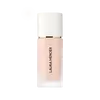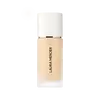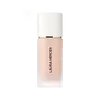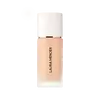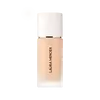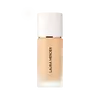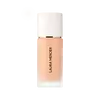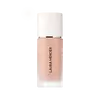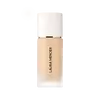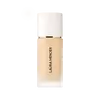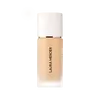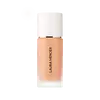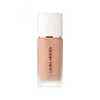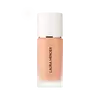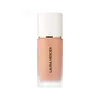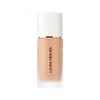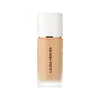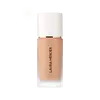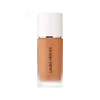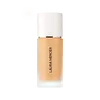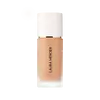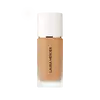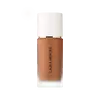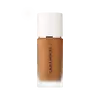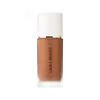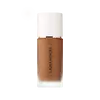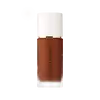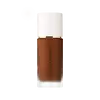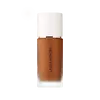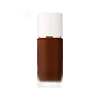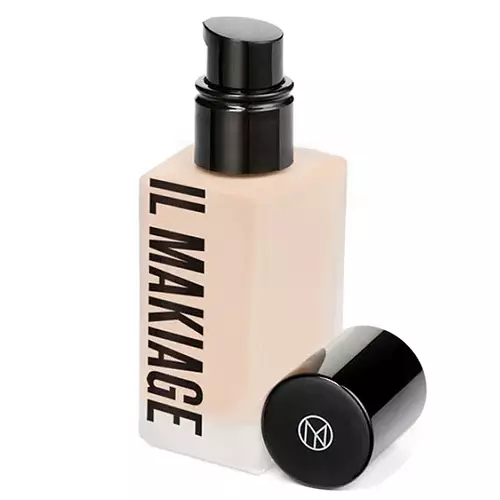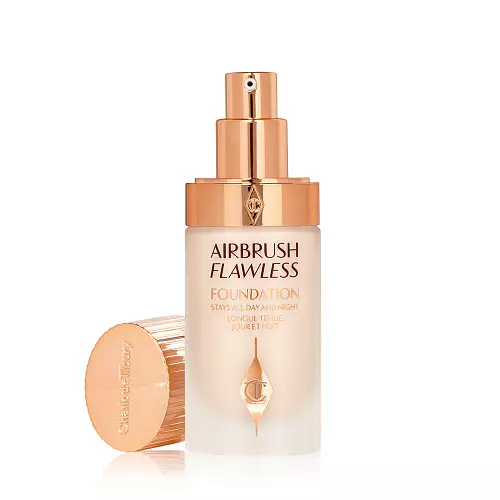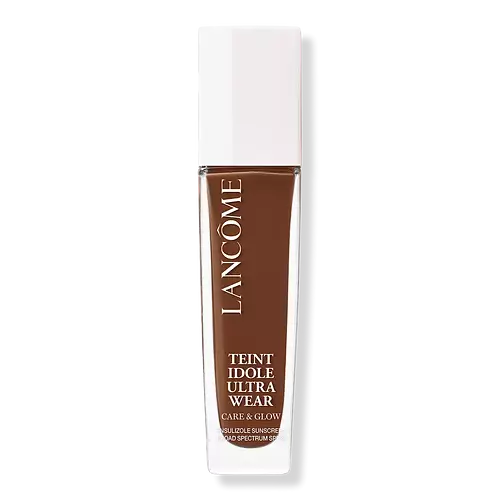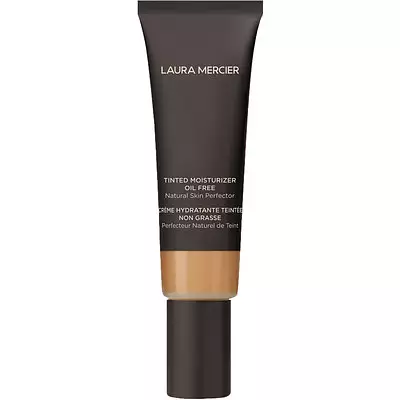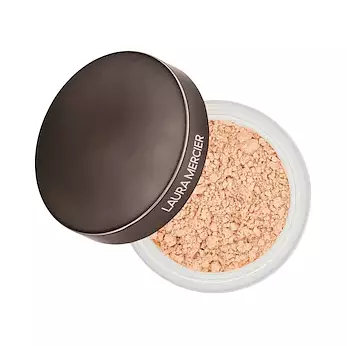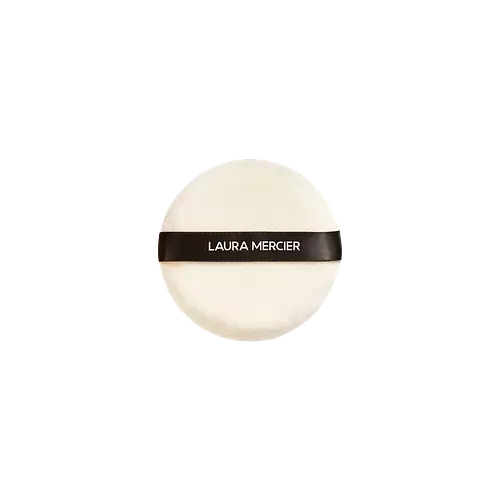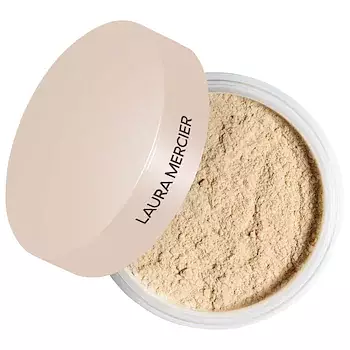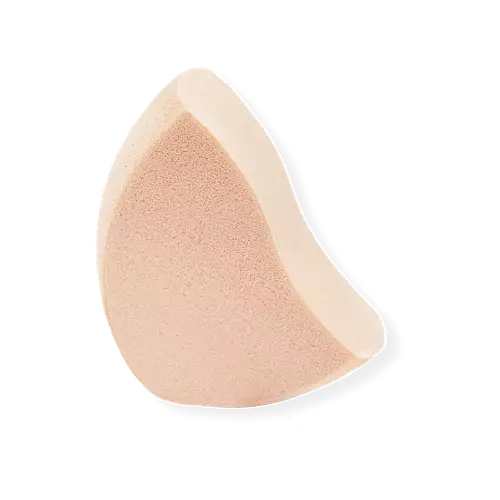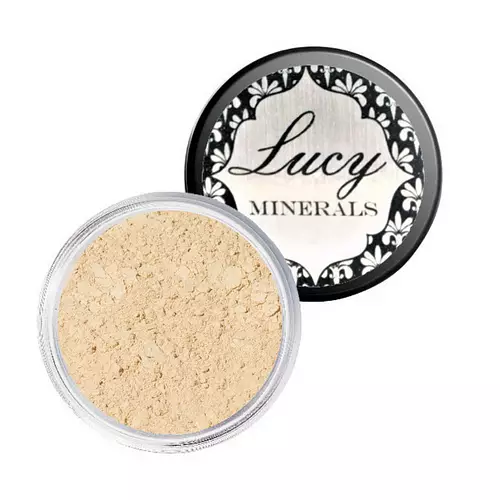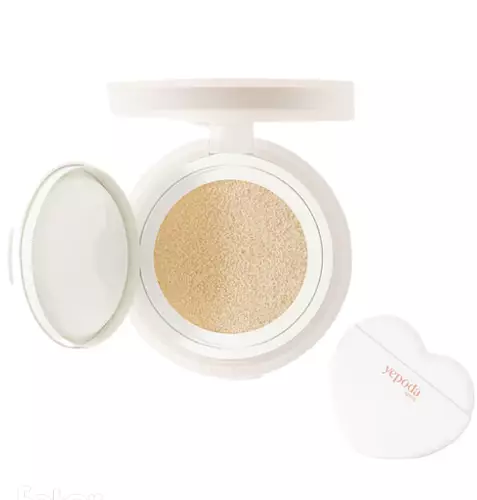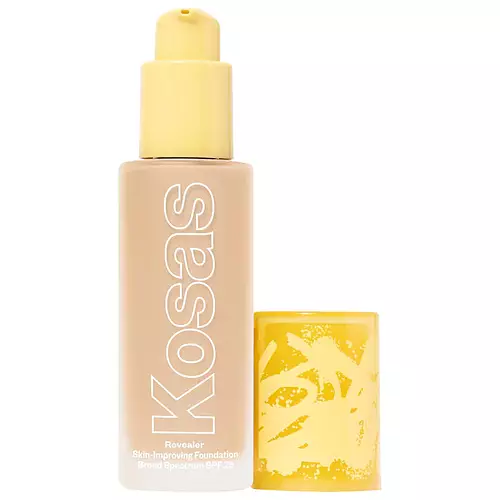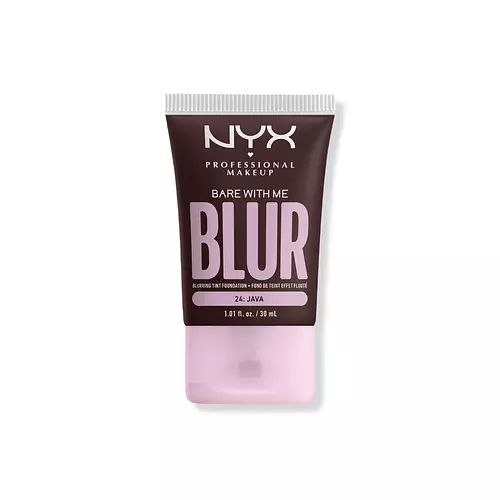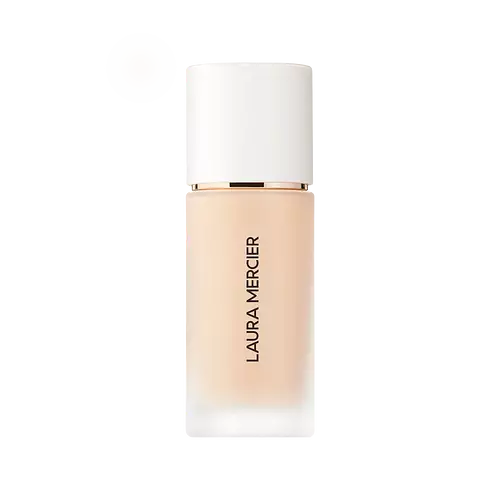
Laura Mercier Real Flawless Weightless Perfecting Waterproof Foundation Ingredients Explained
Updated on February 28, 2024 Submitted by weirdolei
Overview
What it is
Foundation with 21 ingredients that contains exfoliants and Vitamin E
Cool Features
It is vegan and reef safe
Suited For
It has ingredients that are good for brightening skin
Free From
It doesn't contain any harsh alcohols, common allergens, fragrances, parabens, silicones or sulfates
We independently verify ingredients and our claims are backed by peer-reviewed research. Does this product need an update? Let us know.
Foundation with 21 ingredients that contains exfoliants and Vitamin E
Quick info
You should know
Notable Ingredients
This product contains 1 ingredient that may have this attribute:
This product contains 2 ingredients that may have this attribute:
Benefits
This product contains 1 ingredient that may have this attribute:
Concerns
This product contains 1 ingredient that may have this attribute:
This product contains 1 ingredient that may have this attribute:
This product contains 1 ingredient that may have this attribute:
Ingredients 21
Hydrogenated Polyisobutene is a synthetic polymer. Polymers are compounds with high molecular weight. Hydrogenated Polyisobutene is an emollient and texture enhancer.
Silica is a mineral naturally found in our skin. It helps to thicken and smooth the texture of a product. It also acts as an agent for other ingredients by increasing the absorption of other ingredients into the skin.
Polyglyceryl-3 Diisostearate is an emulsifer and emollient. It comes from Isostearic Acid and Polyglycerin-3.
Disteardimonium Hectorite comes from the clay mineral named hectorite. It is used to add thickness to a product.
Cellulose is the main component of plant cell walls. It is used as an emulsifier, absorbent, and texture enhancer.
Theobroma Cacao Seed Extract comes from the Theobroma cacoa, or Cacao tree. Cacao trees are native to tropical landscapes.
Hydrogenated Lecithin is created from the hydrogenation of lecithin. Hydrogenation is a chemical reaction between molecule hydrogen and another element.
Camellia Oleifera Seed Oil comes from a green tea plant native to China. It is closely related to Camellia sinensis. Both plants have very similar properties. This plant also has similar properties to olive oil.
Water. It's the most common cosmetic ingredient of all. You'll usually see it at the top of ingredient lists, meaning that it makes up the largest part of the product.
Pentaerythrityl Tetra-Di-T-Butyl Hydroxyhydrocinnamate (long name, huh?) is a synthetic antioxidant.
Tocopheryl Acetate is AKA Vitamin E. It is an antioxidant and protects your skin from free radicals. Free radicals damage the skin by breaking down collagen.
Butylene Glycol (or BG) is used within cosmetic products for a few different reasons:
Ci 77492 is also hydrated iron III oxide. It's sole purpose is to give a yellow hue to products.
Ci 77891 is a white pigment from Titanium dioxide. It is naturally found in minerals such as rutile and ilmenite.
Isododecane, Isodecyl Neopentanoate, Hydrogenated Polyisobutene, Hydrogenated Polycyclopentadiene, Hydrogenated Didecene, Silica, Polyglyceryl-3 Diisostearate, Hydrogenated Styrene/Isoprene Copolymer, Dicalcium Phosphate, Disteardimonium Hectorite, Cellulose, Lauryl PCA, Theobroma Cacao Seed Extract, Hydrogenated Lecithin, Camellia Oleifera Seed Oil, Water, Pentaerythrityl Tetra-Di-T-Butyl Hydroxyhydrocinnamate, Tocopheryl Acetate, Butylene Glycol, CI 77492, CI 77891
Ingredient Ratings
Based on the number of likes and dislikes each ingredient has received.
Ingredients Explained
Isododecane is a fragrance, emollient, and solvent.
As an emollient, it helps your skin stay soft and hydrated. Emollients help trap moisture into your skin.
Isododecane's role as a solvent makes it a great texture enhancer. It spreads smoothly on skin and does not leave a sticky feeling behind. Isododecane also helps prevent color transfer in makeup products.
Isododecane is not absorbed into skin.
Learn more about IsododecaneWe don't have a description for Isodecyl Neopentanoate.
Hydrogenated Polyisobutene is a synthetic polymer. Polymers are compounds with high molecular weight. Hydrogenated Polyisobutene is an emollient and texture enhancer.
In one study, Hydrogenated Polyisobutene showed better skin hydration levels than Caprylic/Capric Triglyceride. As an emollient, it helps keep your skin soft and hydrated by trapping moisture in.
Hydrogenated Polyisobutene is often used as a mineral oil replacement.
Learn more about Hydrogenated PolyisobuteneWe don't have a description for Hydrogenated Polycyclopentadiene.
We don't have a description for Hydrogenated Didecene.
Silica is a mineral naturally found in our skin. It helps to thicken and smooth the texture of a product. It also acts as an agent for other ingredients by increasing the absorption of other ingredients into the skin.
Silica is often used for absorption and can help reduce shine when products are applied. Silica occurs in naturally in materials like clay and sandstone, and it can also be produced synthetically.
Silica is present naturally within the skin during collagen production and when reducing inflammation.
Learn more about SilicaPolyglyceryl-3 Diisostearate is an emulsifer and emollient. It comes from Isostearic Acid and Polyglycerin-3.
As an emulsifier, it helps stabilize products by preventing oils and water from separating.
This ingredient may not be Malassezia folliculitis, or fungal acne safe.
Learn more about Polyglyceryl-3 DiisostearateWe don't have a description for Hydrogenated Styrene/Isoprene Copolymer.
Dicalcium Phosphate is an exfoliant.
Disteardimonium Hectorite comes from the clay mineral named hectorite. It is used to add thickness to a product.
It can also help stabilize a product by helping to disperse other ingredients.
Hectorite is a rare, white clay mineral.
Learn more about Disteardimonium HectoriteCellulose is the main component of plant cell walls. It is used as an emulsifier, absorbent, and texture enhancer.
This ingredient has many functions:
Fun fact: Cellulose is the most abundant form of organic polymer on Earth.
Learn more about CelluloseWe don't have a description for Lauryl PCA.
Theobroma Cacao Seed Extract comes from the Theobroma cacoa, or Cacao tree. Cacao trees are native to tropical landscapes.
Cacao seed butter extract antioxidants known as polyphenols. Antioxidants help fight free-radical molecules by stabilizing them. Unstable free-radicals may cause damage to your skin cells. Antioxidants may help with anti-aging.
Hydrogenated Lecithin is created from the hydrogenation of lecithin. Hydrogenation is a chemical reaction between molecule hydrogen and another element.
Hydrogenated Lecithin is an emollient and emulsifier. As an emollient, it helps soften skin by trapping moisture within.
The phospholipids in Hydrogenated Lecithin can produce liposomes. Liposomes help other ingredients get through the skin barrier to be better absorbed.
As an emulsifier, it prevents oil and water ingredients from separating.
Learn more about Hydrogenated LecithinCamellia Oleifera Seed Oil comes from a green tea plant native to China. It is closely related to Camellia sinensis. Both plants have very similar properties. This plant also has similar properties to olive oil.
Camellia Oleifera Seed Oil is rich in oleic acid. This makes it an effective moisturizer. By creating a thin film on the skin, Camellia Oleifera Seed Oil traps moisture within. This helps keep your skin smooth and hydrated.
Other components of Camellia Oleifera Seed Oil includes Vitamin E and polyphenols. These are antioxidants that may help slow down the signs of aging. Antioxidants help fight free-radicals, or unstable molecules that can damage our skin cells.
Camellia Oleifera Seed Oil also has anti-inflammatory properties.
The seed oil comes from the dried kernels of the plant.
Learn more about Camellia Oleifera Seed OilWater. It's the most common cosmetic ingredient of all. You'll usually see it at the top of ingredient lists, meaning that it makes up the largest part of the product.
So why is it so popular? Water most often acts as a solvent - this means that it helps dissolve other ingredients into the formulation.
You'll also recognize water as that liquid we all need to stay alive. Talk about multi-purpose! If you see this, drink a glass of water. Stay hydrated!
Learn more about WaterPentaerythrityl Tetra-Di-T-Butyl Hydroxyhydrocinnamate (long name, huh?) is a synthetic antioxidant.
It is used to help stabilize other antioxidants or prevent the color from changing in a product.
As an antioxidant, it helps fight free-radical molecules. Free-radical molecules are capable of damaging our cells and other genetic material. Thus, antioxidants may reduce the signs of aging.
This ingredient is oil-soluble.
Learn more about Pentaerythrityl Tetra-Di-T-Butyl HydroxyhydrocinnamateTocopheryl Acetate is AKA Vitamin E. It is an antioxidant and protects your skin from free radicals. Free radicals damage the skin by breaking down collagen.
One study found using Tocopheryl Acetate with Vitamin C decreased the number of sunburned cells.
Tocopheryl Acetate is commonly found in both skincare and dietary supplements.
Learn more about Tocopheryl AcetateButylene Glycol (or BG) is used within cosmetic products for a few different reasons:
- It is a solvent, meaning that it helps to dissolve other ingredients. This also enhances the absorption of the product into one's skin.
- It is a humectant, which means that it helps attract moisture into the skin.
- It helps improve product application.
Overall, Butylene Glycol is a safe and well-rounded ingredient. It is unlikely to irritate skin, and works well with pretty much all other ingredients.
Ci 77492 is also hydrated iron III oxide. It's sole purpose is to give a yellow hue to products.
Iron III oxides are classified as inorganic chemicals for coloring.
Synthetically created Ci 77492 is considered safer than those naturally found. This is because the synthetically created version may contain less impurities. Iron oxides are generally non-toxic and non-allergenic.
Learn more about CI 77492Ci 77891 is a white pigment from Titanium dioxide. It is naturally found in minerals such as rutile and ilmenite.
It's main function is to add a white color to cosmetics. It can also be mixed with other colors to create different shades.
Ci 77891 is commonly found in sunscreens due to its ability to block UV rays.
Learn more about CI 77891When to use
How this product is used by our community
Directions
Apply to clean skin with Brush. Begin with one pump, as minimal product is needed to achieve your desired coverage.
Apply to clean skin with Brush. Begin with one pump, as minimal product is needed to achieve your desired coverage.
Compared With
Here are some products that it's often compared with
More Laura Mercier Products
See all Laura Mercier productsMore Foundations
See all foundationsWe're dedicated to providing you with the most up-to-date and science-backed ingredient info out there.
The data we've presented on this page has been verified by a member of the SkinSort Team.
Read more about us
